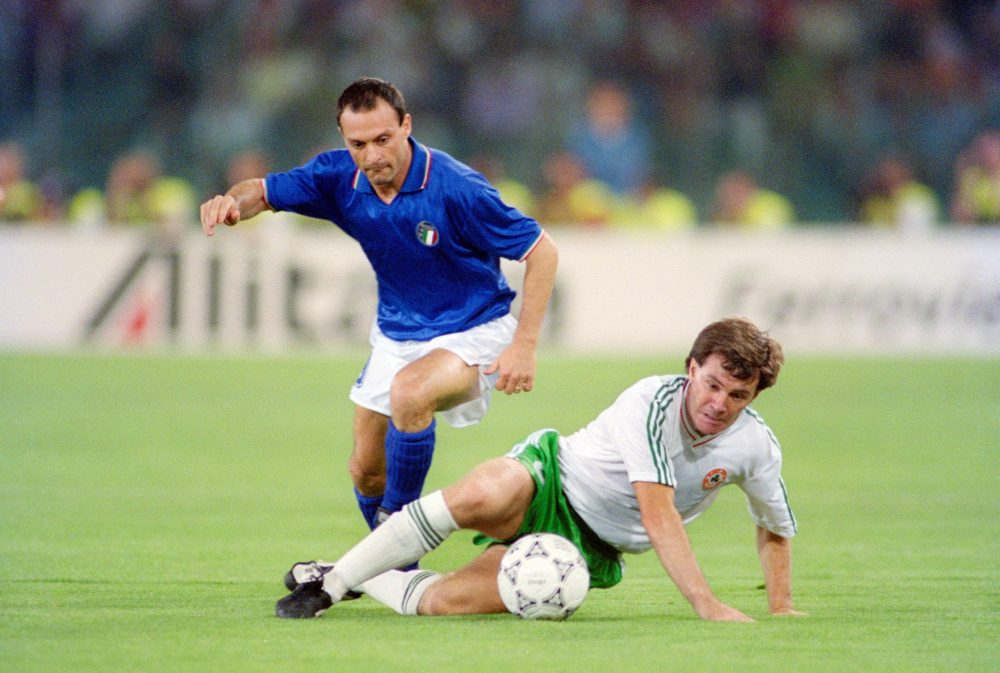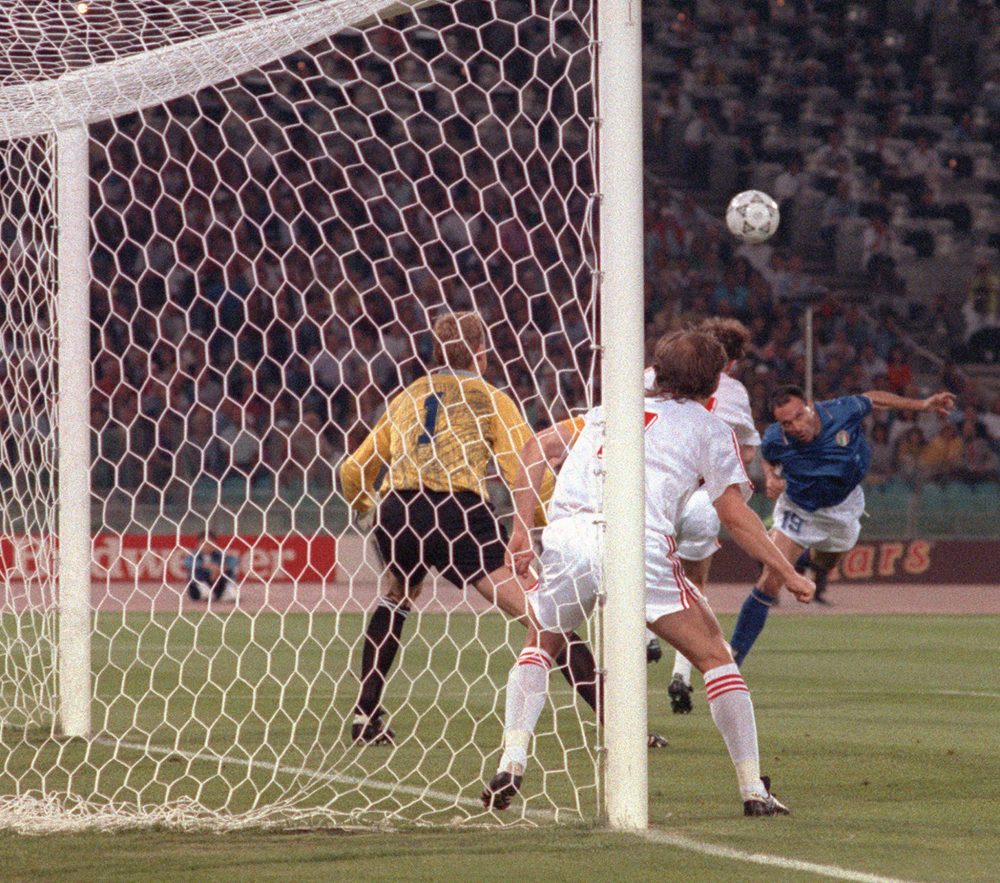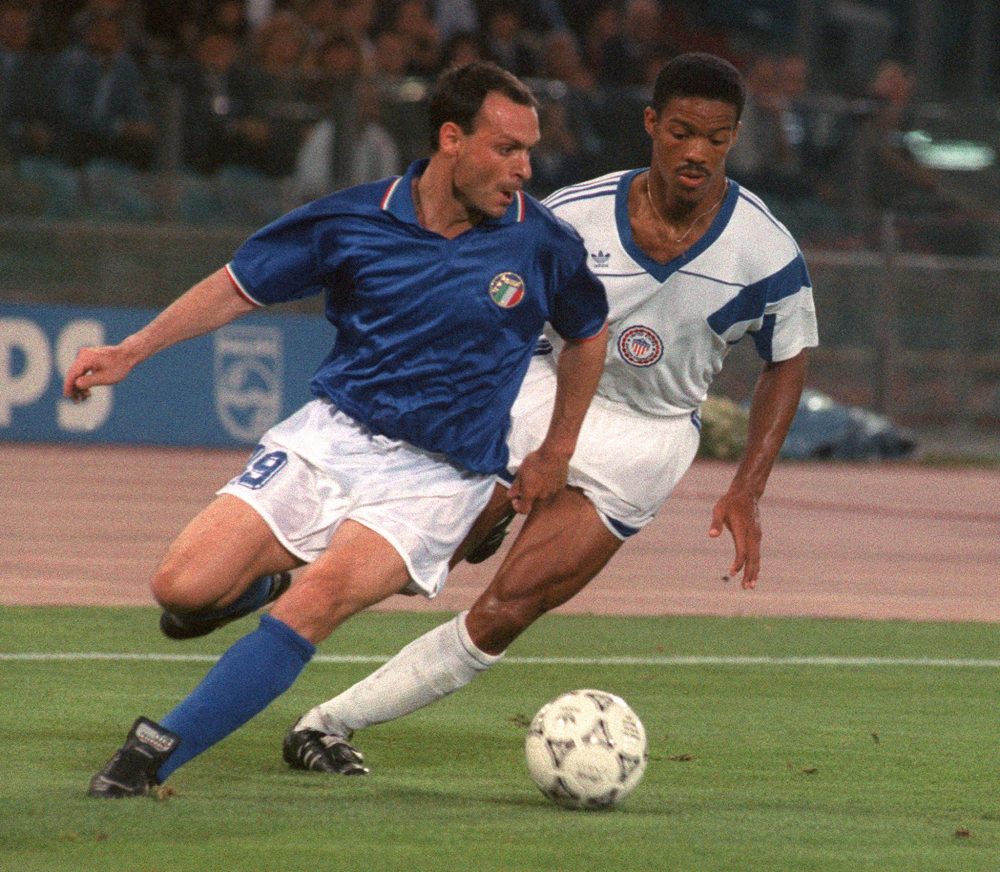Toto Schillaci, the unlikely hero of Italia 90, has revealed he’s an Arsenal fan after meeting Arsene Wenger in Japan.

As we all know, Arsene Wenger was managing J-League side, Nagoya Grampus Eight before he came to Arsenal.
Schillaci played for Juventus and Inter Milan before heading for Japan in 1994 on a free transfer to sign for Jubilo Iwata where he spent three seasons, scoring 65 goals in 93 appearances.
“Thirty years have passed, and naturally the period of the World Cup is always present in my eyes and my mind,’ Schillaci told Sportsmail.
“Even after all this time, my popularity has never waned.
“It’s even the case with younger fans, who can go on the internet and YouTube. When I go to different places around the world, I still feel people’s affection and enthusiasm: autographs, photos, Toto this, Toto that.
“If I’m loved it’s not just because of what I did on the pitch, but also off it — someone can be a worldclass player but also a stronzo (assh**e). The fact I entered the hearts of Italians is about how I behaved.
“I always give my time to normal people. I am one of them. I am not fake — fans know with Schillaci that what you see is what you get — and they like me because of it.
“I came from nowhere to be top scorer, player of the tournament and second in the Ballon d’Or.
“From nothing, I became one of the most important players in the world at that time, but luckily I have a certain personality, maybe different from lots of other players.
“It’s not like I sit down in front of the computer and say, “I’ll re-watch Italia ’90” — but I see the goals all the time. Whenever I do TV work or go to Juventus fan clubs, people show them. It’s always there.”
So what about Arsene and Arsenal?

“I love English football to death and if I’d had the chance I would have gone to play there,” he added. “I like Arsenal because I got to know Wenger and I always admired his teams and their style of play.
“I’m passionate about the Premier League. English players, when they’re fouled, get up and get on with it. It’s not like Italy where players surround the referee. Teams fight to the end, even if they’re losing 4-0. The referees allow the game to flow.
“If I’d played today, I would have scored quite a few more goals. In my day, you were man-marked by players who kicked you, followed you for 90 minutes. Now it’s much easier. Teams play with a higher line and I’d have used my pace to take advantage.’
